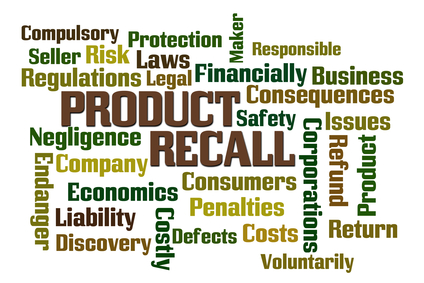For reasons we have discussed in class, food recalls are now a very common occurrence. As mentioned during the food allergens unit, most food recalls are for undeclared allergens (e.g., when soy or milk or wheat or other allergenic ingredients) that get mislabeled or inadvertently added to a food. While these can be serious, the recalls that get the most attention are for pathogens in foods. Even then, unless the recall is particularly widespread and causes lots of illnesses or deaths, it seems like the public hardly pays attention.
Although the FDA and USDA websites post recalls, one of the best sites for a daily check on the most current recalls is the Food Safety News website. Interestingly, it is maintained by the Bill Marler law firm (Marler Clark). There you can see that in the last month there have already been 8 recalls, most of which are due to pathogenic organisms like Salmonella.
For some of these, the contamination was detected before anyone got sick, but in other cases, the recall was prompted by reported illnesses. One might argue that the frequency of recalls is too high and that this means our food supply is not safe. On the other hand, it could also be argued that detection and tracing methods are now so sensitive and so fast that public health is actually better off than ever before.
This a glass half-full or half-empty kind of argument. Which side do you take?
Image from http://www.reajetus.com

